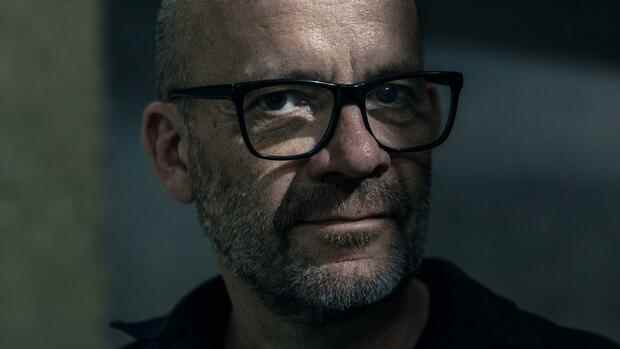Laguna de la Vera has been active in the software sector for over 30 years. In July 2019 he was appointed founding director of the Agency for Leap Innovation by the federal government.
(Photo: Sprin-D)
Mr. Laguna de la Vera, a car with a rocket engine, the largest airplane in the world, the first commercial vehicle with a diesel engine: a hundred years ago, Germany was continuously producing innovations. Why is it only Tesla boss Elon Musk who is bringing new ideas to the streets today?
From the 1880s to the 1930s, we experienced a disruptive phase of innovation in Germany. Pharmacy of the world, chemical factory of the world, car factory of the world: we invented whole industries and made them big. Basically, we can still derive large parts of the industrial added value from it. And of course life is comfortable there…
You mean to say Germany was doing too well?
In between, we almost removed ourselves from the globe. But after rebuilding, we created prosperity through incremental improvements. That has worked well for 75 years.
The famous theory of the innovator’s dilemma states that leading companies are good at making products evolutionarily better. But they fail because of disruptive innovations. Will Germany now be left behind precisely because it was so successful?
As author Clayton Christensen puts it, incumbents are often the last to spot the onslaught of new companies and technologies. That was the case with computer technology, with the Internet, with smartphones. The Federal Agency for Disruptive Innovations (SPRIND) was also created because this dilemma exists.
Supply chains have been torn apart by the pandemic and the war. Production stands still because chips and wiring harnesses are missing. And for the first time it is clear how dangerous our dependency on oil and gas from Russia is. How big does the crisis have to be?
During the pandemic, we were no longer sovereign as a state due to a lack of digitization. With the Corona warning app, we had to beg from Google and Apple. The situation in the health authorities may have even cost lives. It was terrible and had a woke effect, but it wasn’t existential for us.
Top jobs of the day
Find the best jobs now and
be notified by email.
The pandemic will pass, there is no immunization against geopolitical tensions. Is war the greater opportunity for innovation?
The Ukraine crisis shows our dependence on Stone Age technology. We could have solved the problem of energy production 50 years ago. But there wasn’t enough pressure. The war situation can give the impetus to take risks and move out of the comfort zone. It is probably only now that we can convey to the citizens that crazy packages have to be put together.
More on the subject:
Didn’t the climate demonstrations show that society is ready for change?
The consequences of climate change are too far away in time, most people are not really interested in them. But fuel prices, heating costs, the war in Ukraine and the danger that Putin will go nuts – that’s what’s going on.
What do you expect from the federal government?
We have to spend hundreds of billions of euros to become independent. In the current situation, politicians can say: We are doing a solo for the energy transition. In the new federal government, however, we felt the necessary sense of urgency right from the start.
Germany has already been credited with leading the way in climate change. Politics paved the way. But the new solar giants come from China.
That’s right, we co-invented the wind and solar industries. But we didn’t understand how to help local companies to scale. With our policy, we killed them, almost “broken subsidies” and then didn’t persevere.
Back to Elon Musk: Would Tesla and SpaceX be as successful today if he had started the electric car and space mission companies here?
That’s the problem. Elon Musk would also very likely have gone bankrupt in Germany in the gap between the promotion of innovation and access to growth capital. Tesla would have been insolvent for a long time without the liquid financial market in the USA and the state millions from CO2 certificates and loans. And SpaceX owes its success largely to government contracts from the US Space Agency and the US Department of Defense.
Elon Musk founded Tesla and Space X, among others. He received a lot of support from the USA – according to Laguna de la Vera he would already be insolvent in Germany.
(Photo: Reuters)
With the next change of government, the subsidy doldrums for new German energy companies and projects could set in again. Are you ruling that out this time?
The longer the perception of the crisis lasts, the greater the chance that politics will stick with it. In addition, as an innovation agency, we can ensure consistency. But the aim must be to fire up the ecosystem so that it runs on its own. Our industry is still very agile when it needs to be. And besides Germany, there are other industrial nations in Europe that can scale such issues. They’re all ready.
Mr. Laguna de la Vera, thank you very much for the interview.
More: That’s why Tesla and Mercedes have so far failed to drive fully autonomously
